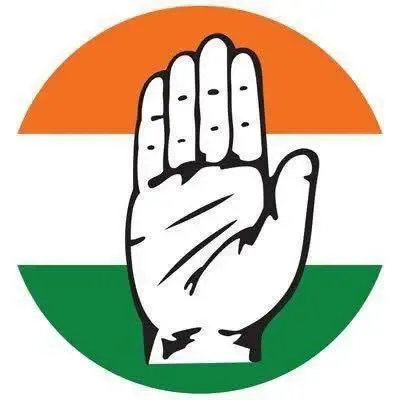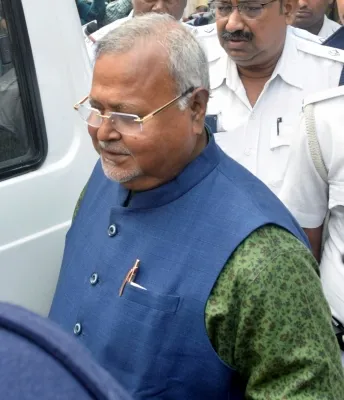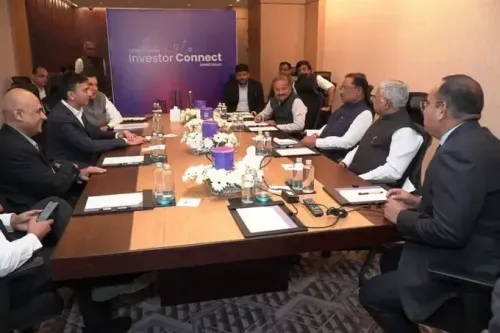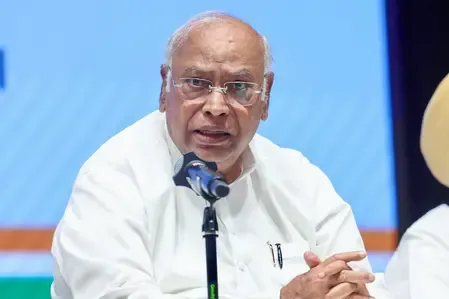How Did PM Modi Commend India's Advocacy at the Op Sindoor Meeting?
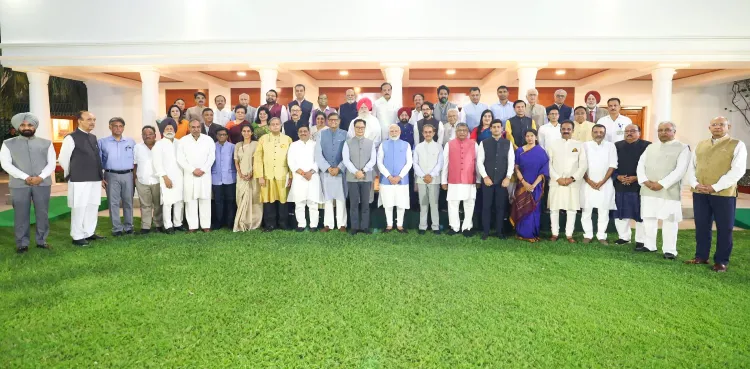
Synopsis
Key Takeaways
- PM Modi praised multi-party delegations for their advocacy.
- The meeting highlighted India's commitment to peace and counterterrorism.
- Delegations engaged with 33 countries to promote India's security measures.
- Bipartisan representation displayed unity against terrorism.
- Insights from the missions will inform future diplomatic strategies.
New Delhi, June 10 (NationPress) Prime Minister Narendra Modi convened with members of various delegations who represented India across multiple nations at his official residence on Tuesday.
The members detailed India's unwavering commitment to peace and the urgent necessity to combat the scourge of terrorism. We take pride in the exemplary manner in which they articulated India's stance.
The multi-party delegations, recently returned from diplomatic engagements abroad, “played a vital role in emphasizing India’s commitment to peace and the imperative to eliminate the threat of terrorism”.
PM Modi praised the delegations for their commitment to advancing India's voice on global stages.
In a post on X, PM Modi expressed: “I met members of various delegations who represented India in different countries, elaborating on India's commitment to peace and the need to eradicate the menace of terrorism. We are all proud of how they presented India's voice.”
The meeting highlighted India's proactive stance in shaping the international discourse regarding terrorism, reaffirming its dedication to global security and diplomatic relations.
The delegation included parliamentarians (MPs) from different political factions, former MPs, and experienced diplomats, tasked with conveying India's strong position against terrorism and its commitment to world peace following Operation Sindoor.
This military operation was initiated in response to the April 22 terror attack in Pahalgam, during which India conducted targeted strikes against terror hubs in Pakistan and Pakistan-occupied Jammu and Kashmir.
As part of a broader diplomatic initiative, seven delegations visited 33 countries, engaging with policymakers, elected representatives, and international institutions to showcase India's counterterrorism efforts and highlight Pakistan’s enduring support for extremist factions.
During the meeting, delegation members shared insights from their discussions with global leaders, explaining how India's position was perceived on the international platform.
This initiative, lauded by the central government, was significant for its bipartisan representation, featuring parliamentarians from the ruling Bharatiya Janata Party, allies like Janata Dal (United) and Shiv Sena, as well as opposition members from Congress, Dravida Munnetra Kazhagam (DMK), Nationalist Congress Party (Sharad Pawar faction), and All India Majlis-E-Ittehaddul Muslimeen (AIMIM).
Leading these diplomatic missions were BJP's Ravi Shankar Prasad and Baijayant Panda, Congress' Shashi Tharoor, JD(U)'s Sanjay Jha, Shiv Sena's Shrikant Shinde, DMK's Kanimozhi, and NCP-SP's Supriya Sule.
The government initiated this outreach to present a united national front against terrorism, with opposition leaders such as Congress MP Shashi Tharoor and AIMIM MP Asaduddin Owaisi collaborating with ruling coalition members to advocate for India’s position globally.
Among the notable former parliamentarians in these delegations were ex-Union ministers Ghulam Nabi Azad and Salman Khurshid, whose participation highlighted the bipartisan character of India's global engagement on security and counterterrorism.
External Affairs Minister S. Jaishankar previously engaged with the delegations, commending their efforts in effectively communicating India's stance.
He underscored the necessity of ongoing diplomatic engagement to counter misinformation and bolster India's global credibility. The insights gained from these missions are anticipated to shape India's future diplomatic strategies in counterterrorism and international collaboration.

